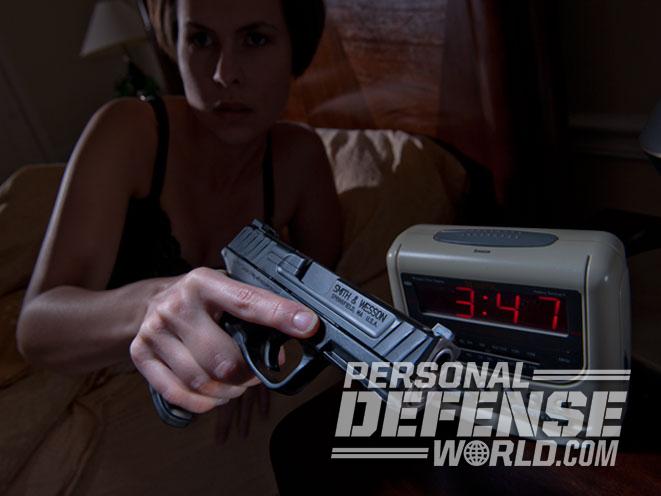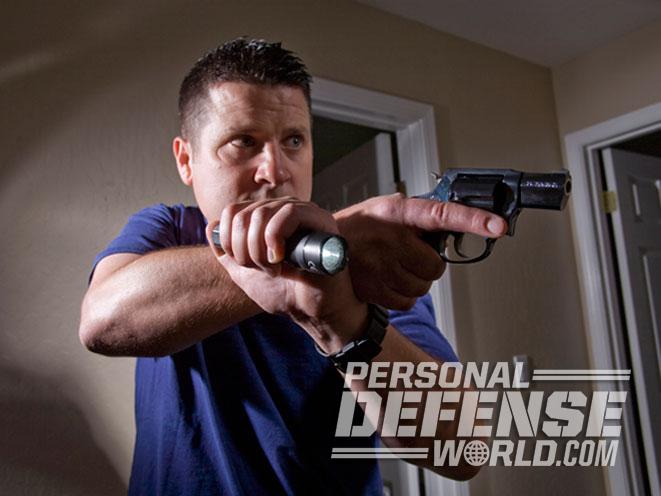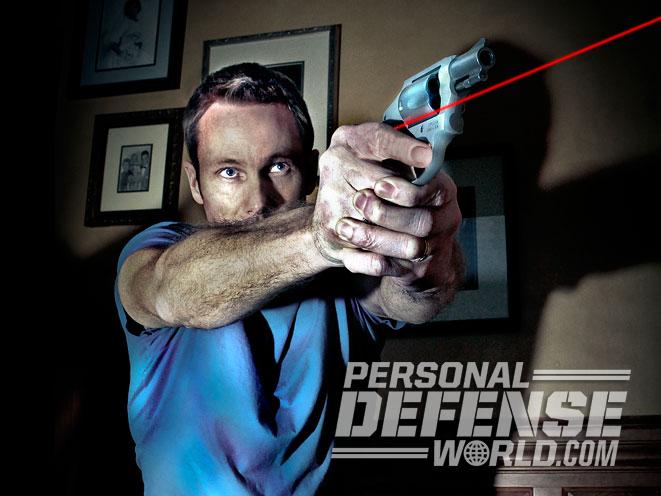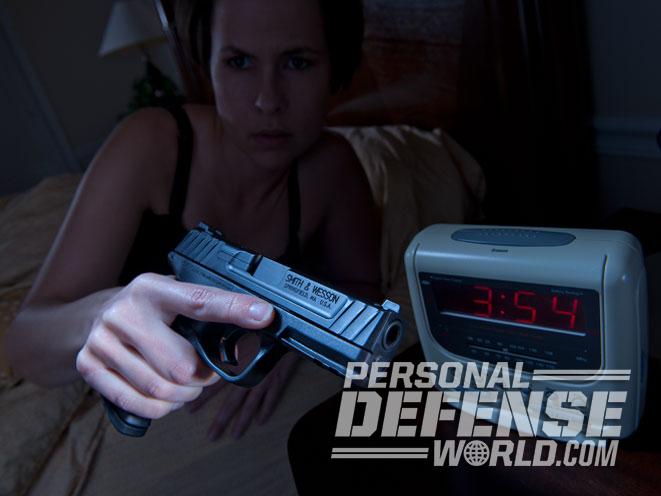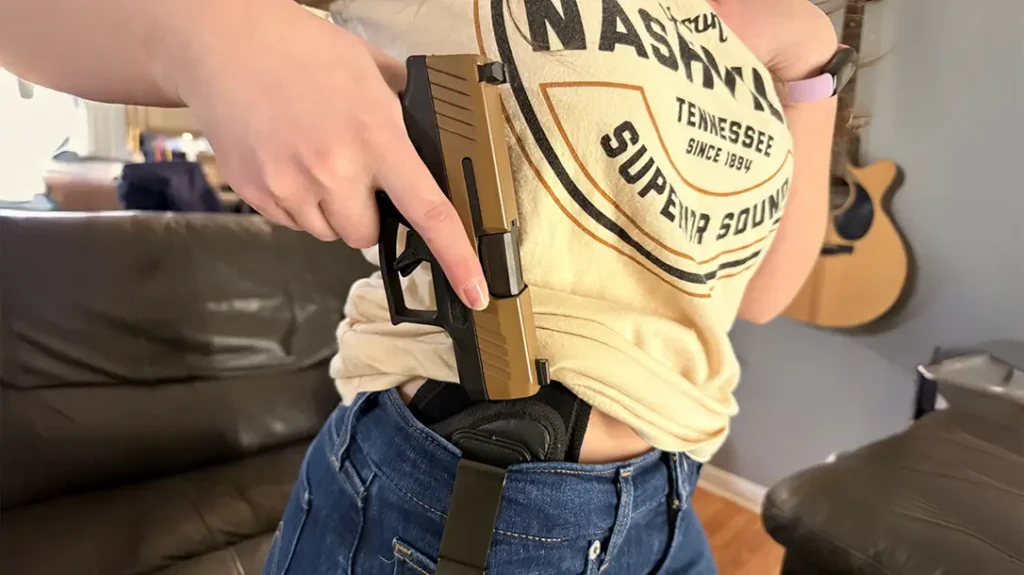In a nation that has become a sound-bite society, we have a public and therefore a jury pool that is increasingly vulnerable to simplistic, misinformed answers to complicated questions. This has certainly been true in recent years, with print and electronic media having disseminated false perceptions about such topics as Castle Doctrine and Stand Your Ground laws.
We are told on editorial pages that with these laws in place, anyone can kill anyone and get away with it by claiming “I was in fear for my life.” We are told that this allows criminals to commit murder and get away with it by uttering the magic words, “It was self-defense.” We are told that with these laws rivers of blood will run in the streets, that both malicious and negligent shootings will go un-punished in the civil courts, and that homicides will rise and are already rising as a direct result. The facts, however, show otherwise.
Clarity
Advertisement — Continue Reading Below
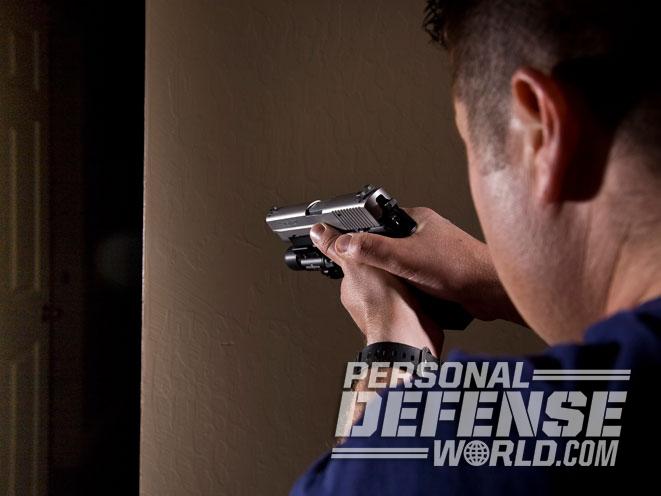
Castle Doctrine derives from the ancient principle in the English Common Law that held that the individual’s home is his castle; attacked there, he need not retreat, and even the king could not enter the cottage of the most humble peasant without a warrant. While the latter element touches on Fourth Amendment issues not on point to the topic of the moment, “a man’s home is his castle” is so well established that it has long since entered daily American idiom.
The doctrine speaks to home and curtilage: The house or apartment itself, and attached or adjacent buildings; actual definitions of “curtilage” may vary in case law on a state-by-state basis. Normally, however, it will not extend to the front lawn, the sidewalk or the far boundaries of one’s farm or ranch.
Advertisement — Continue Reading Below
RELATED STORY: Massad Ayoob – Deadly Force From A Position of Disadvantage
Castle Doctrine issues can be murky. In one famous case in New England in the mid-1970s, Commonwealth of Massachusetts v. Roberta Shaffer, a state supreme court held that a woman who shot her common-law husband when he attacked her in their home was not covered because the home was his, too, and therefore her invocation of the Castle Doctrine was not applicable. In 2012, however, in State of Nebraska v. Darrel White, the Nebraska State Supreme Court upheld a man’s right to, without retreat, kill the roommate who violently attacked him in the abode they both shared.
Stand Your Ground (SYG) laws are geared toward confrontations that occur outside the home, since they would be redundant to Castle Doctrine, which already makes it clear that the individual need not retreat before using defensive deadly force against a home invader. SYG protects a person only if: (1) He was not the aggressor, or if he was, has attempted to break off hostilities before the second party’s attack on him now necessitates your client’s use of deadly force; (2) He was in a place where he had a right to be; (3) He was not committing a crime at the time.
Advertisement — Continue Reading Below
Since the passage of the relevant Texas law authored by State Senator Jeff Wentworth, retreat has not been required before resorting to deadly force if the latter is necessary. However, even prior, retreat has never been demanded unless it could be accomplished with complete safety to oneself and others. This is true in Texas, and has long been true in the rest of the country as well, including the so called “retreat states.”
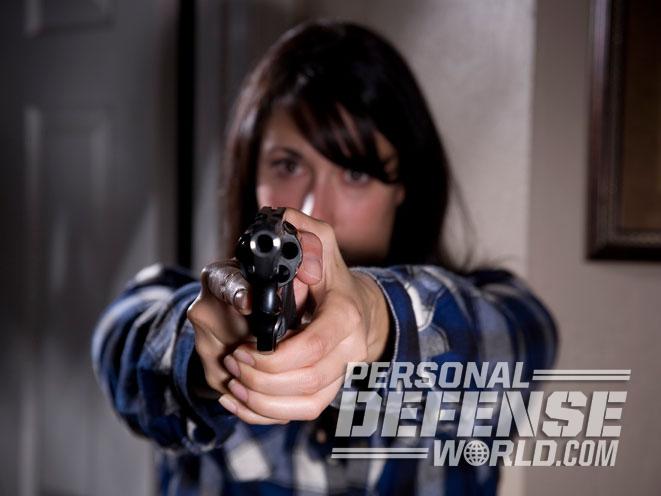
It is imperative that you know the difference. As you know, self-defense is an affirmative defense, which shifts the burden of proof. In most jurisdictions, for a self-defense plea to prevail, the defense will have to convince the triers of the facts to a preponderance of evidence standard that the shooting was indeed justified. This burden, vastly higher than merely creating an element of reasonable doubt as to his guilt, is far more easily met if the defendant takes the stand. After all, you are stipulating that he shot the deceased; the issue is why he did so. Was his purpose malicious or justifiable? You can say whatever you want in an opening statement, but by the time you’re ready to close, you have to introduce testimony or evidence to back up any assertions you make at the opening. If your client doesn’t take the stand, who else can testify as to what his purpose was when he pulled the trigger?
Advertisement — Continue Reading Below
Since there is therefore a high likelihood that your client will take the stand, it is important for you to have schooled him in the difference between Castle Doctrine and SYG. Suppose your client was attacked by a knife-wielding mugger in a public park, and instead of attempting to retreat, drew his legally carried gun and shot the assailant dead. During cross-examination, opposing counsel may ask him, “Mr. Defendant, what do you believe justified you using a gun on him without at least attempting to just run away without bloodshed?” If your client makes the mistake of giving a “Castle Doctrine” answer, opposing counsel has your man in a very disadvantaged position.
I would expect the opposing lawyer to hand him a copy of Black’s Legal Dictionary and have your client read the definition of Castle Doctrine to the jury. Then, your opposite number will pounce. “So, Mr. Defendant, it’s the home that’s the castle. But this shooting took place in a park. Are you telling this jury you consider the park to be your castle grounds? Who was it, exactly, who made you the king of all the rest of us?”
This is why it’s important for anyone who carries a gun to know the specific differences between Castle Doctrine and Stand Your Ground.
Advertisement — Continue Reading Below
Justified Or Not?
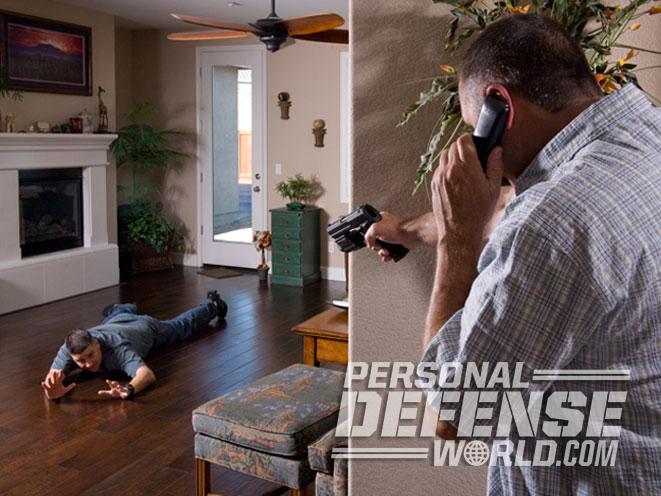
Since late in the first quarter of 2012, when a shooting in Sanford, Florida, captured the headlines, that state’s law is the one that has received the most popular discussion. Passed in 2005, this law not only clarified Castle Doctrine in the Sunshine State, and rescinded the previous retreat requirement, but also provided for a presumption of innocence element. The defendant can request a hearing (in this case, more of a mini-trial) in which a judge who determines the act to have, more likely than not, been justified, may dismiss the case.
Advertisement — Continue Reading Below
RELATED STORY: 6 Must-Know Court Cases For Gun Owners
Texas, like Florida, has a provision in its law that if the shooting has been determined to be justified, the shooter should be immune to civil lawsuit. It is reasonable to assume that an allegation of negligence by the plaintiff may, if credibly presented, bypass this protection, since, by definition, there can be no justifiable accident. In one case now proceeding through the civil system in Florida, the state’s attorney has chosen not to pursue the matter of a young man who killed a burglar who was menacing him and his mother. However, that prosecutor’s office has not yet issued a memorandum of closure declaring this use of deadly force to have been justified. At this point the lawsuit is still alive and well, and progressing toward trial since it has not, by definition, been “determined” to have been justified.
In Tyler, Texas, in February of 2007, rancher Terry Graham came home to catch a drug-addicted, longtime felon and burglar leaving Graham’s freshly looted house. When the homeowner challenged him, the burglar gunned his getaway car at Graham with his left hand on the steering wheel and his right hand reaching into a bag of stolen guns. Graham fired a single shot. The shot killed the assailant and undoubtedly saved Graham’s life and perhaps the lives of two other people who were with the homeowner.
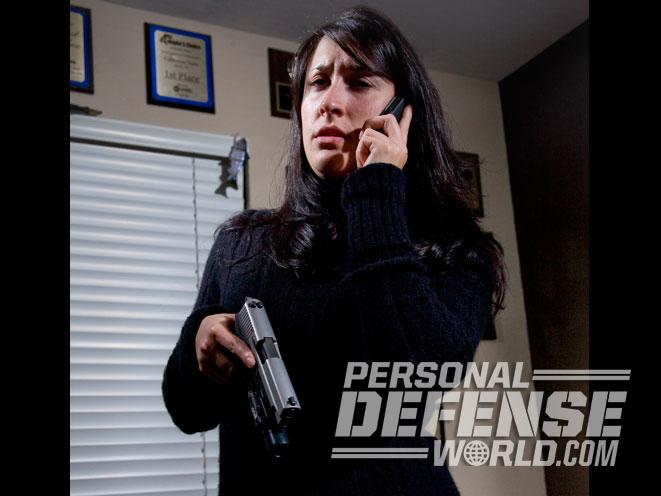
I spoke for him in front of the grand jury convened by a fair district attorney, Matt Bingham. They no-billed. The family of the deceased sued. Attorney Tracy Crawford called Albert Rodriguez and me as experts for the defense at trial in July of 2009. The jury found entirely for defendant Terry Graham. By then, however, Mr. Graham had amassed substantial legal fees and been placed under tremendous stress for nearly two and a half years.
It was to prevent such obvious injustices that the Texas state legislature passed its law creating civil liability immunity for justified use of deadly physical force. However, that law did not go into effect until September of 2007, some seven months after Mr. Graham had to fire in what was later clearly shown to be legitimate self-defense. Tracy Crawford and many other Texas attorneys felt that if the law had been in place at the time of the Graham incident, much unnecessary grief might have been saved.
While the Castle Doctrine and Stand Your Ground principles are mature, long-established concepts in law, the civil immunity provisions in Texas and Florida law are fairly recent. They have not been tested all the way up through the appellate process. In Texas, it remains less than perfectly clear as to what “deems” the use of fatal force justifiable for purposes of civil immunity.
Stand Your Ground
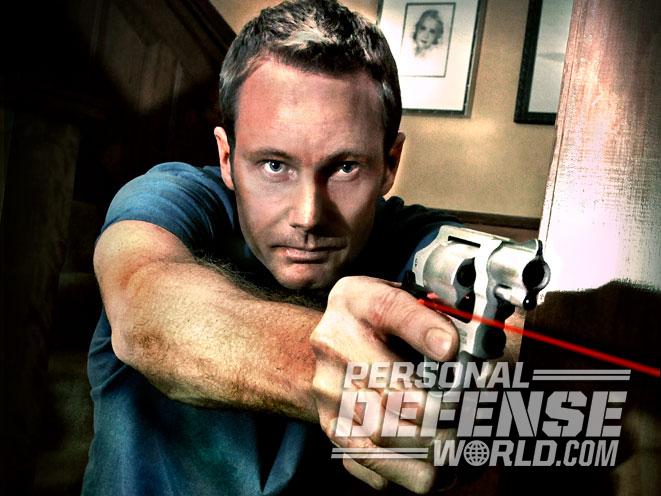
Will an increase in justifiable homicides in states with SYG laws mean that more lives are being lost? Not necessarily. Historian Clayton Cramer noted that when Time magazine did a story on every death by gunfire for one week in America, and returned a year later to follow up on the outcomes, a significant number of those fatal shootings that had originally been implied to be criminal homicides turned out to be justified self-defense incidents.
Cramer cited one study in which justifiable homicides by armed citizens had increased three-fold—but so had justified officer-involved shootings in the same region. The change in law as it affected citizens certainly didn’t change anything from the police side. Cramer considers it logical to conclude that, within the studied population, violent activity by criminals warranting the defensive use of deadly force had simply increased.
RELATED STORY: Beating the ‘Rambo’ Rap – How to Explain a Self-Defense Shooting in Court
The recent Texas A&M University study on homicides as related to Stand Your Ground laws notes, “This indicates that, in addition, we look at justifiable homicide, which is a separate classification available in the Supplemental Homicide Reports. One concern with these data is underreporting; Kleck (1988) estimates that only one-fifth of legally justified homicides are classified that way by police.” Many shootings that previously had to go to trial to determine justifiability—at the expense of many tax dollars, and much human suffering by the wrongly accused and their families—are now simply found justifiable earlier. Far from being a bad thing, early determination of justifiability reduces the cost in public treasure and private trauma, and better serves justice in both respects.
Will criminals kill people and get away with it by claiming self-defense? Obviously not, as evidenced by the jury’s recent verdict in Texas v. Raul Rodriguez. Skilled prosecutors have been winning convictions against murderers who falsely claimed self-defense for as long as there have been murder trials. One need look no farther than the 2012 conviction for murder of Raul Rodriguez, the Houston-area man who went to a loud neighbor’s house with a video camera and a gun, and as the prosecutor told the jury in her opening statement, used every “CHL buzzword” in an incident that escalated until he had shot three men, killing one. Despite his on-camera statements of “I am standing my ground” and “I am in fear of my life,” the Houston jury saw it as a malicious setup. Mr. Rodriguez is now serving a long prison sentence.
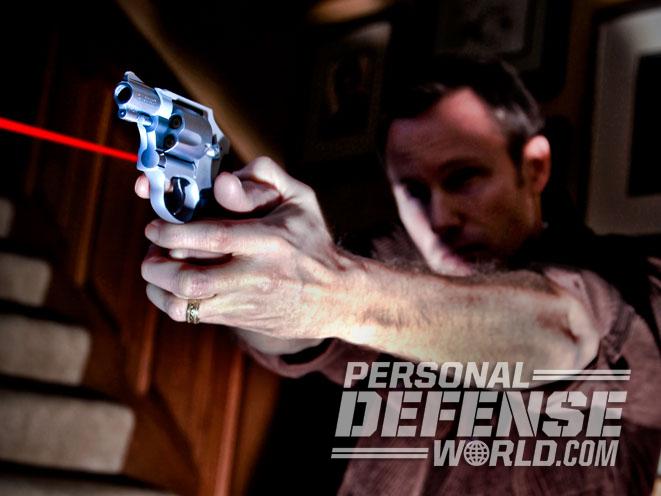
Will the families of men killed in SYG self-defense shootings be denied civil justice because of the civil immunity clauses? No. A finding of self-defense at the hearing level means that justifiability has already been proven to a preponderance of evidence. Wrongful killings are exempt from immunity, a fact obvious to anyone who reads actual laws instead of newspaper headlines or the catchphrases created by people with agendas.
Will Stand Your Ground laws mean that cops will slough off investigations of homicides as soon as the shooter claims self-defense? No, and with 38 years of carrying a badge, I take personal offense at that false allegation. “The death of a citizen” is a top-tier priority for law enforcement and the prosecutorial bar alike, and it is a gross insult to suggest that either entity would cut corners in the investigation of any homicide.
The conscientious police and prosecutors of America know that their duty is as much to exonerate the innocent as to punish the guilty. The recent changes in the law from Texas to Florida to other parts of the country simply reinforce the principles of justified use of lethal force for the protection of the innocent from violent criminal assaults.
The bottom line is simple: Sometimes criminals are so violent that there is no way to stop them but with deadly force. It happens for cops, security professionals and armed citizens.
Note: The author originally presented this material during the Texas Bar Association’s 2013 Texas Firearms Law Seminar.
